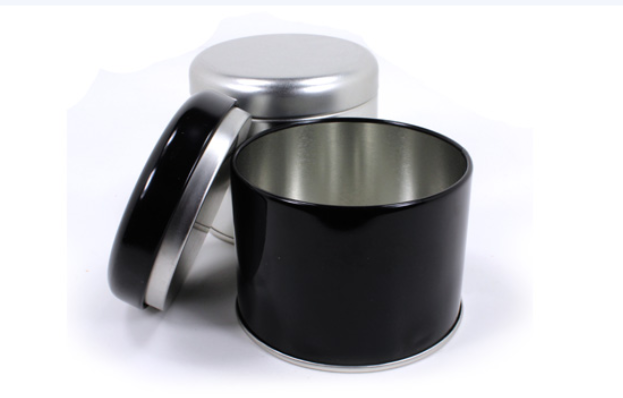How do you ensure that black tins meet FDA or EU packaging regulations?

In the world of consumer goods, the safety and integrity of packaging materials are paramount. Packaging doesn’t just serve a functional role in protecting and containing products; it also plays a critical part in ensuring the safety of consumers. In industries like food, cosmetics, and pharmaceuticals, the materials used for packaging are subject to rigorous safety standards. Black tins are popular among these materials due to their strength, aesthetic appeal, and versatility. However, authorities such as the U.S. must set strict regulatory requirements for these tins to be deemed safe for use by the Food and Drug Administration (FDA) and the European Union (EU).
Understanding FDA and EU Regulations
To understand how we meet FDA and EU packaging regulations, we must first explore these authorities’ frameworks. The FDA, responsible for overseeing food safety in the U.S., provides clear guidelines on packaging materials through Title 21 of the Code of Federal Regulations (CFR)—specifically, Part 177 addresses indirect food additives, including the materials used for packaging. The FDA requires manufacturers to demonstrate that the materials used, such as metals in black tins, do not release harmful substances into the food or product they contain under normal use conditions.
Similarly, the European Union has established regulations for packaging materials in direct or indirect contact with food. The EU’s Framework Regulation (EC) No 1935/2004 mandates that all packaging must be safe, not release harmful substances, and maintain the quality and safety of the packaged food or product. Additionally, the EU has specific rules for materials such as plastic and metal. For instance, Regulation (EC) No 10/2011 governs plastic packaging materials, while materials such as metal tins must also comply with general safety requirements outlined in EC No 1935/2004.
High-Quality Materials and Compliance
The foundation of regulatory compliance begins with the careful selection of materials. We use only the highest-quality metals, including tinplate and aluminum, to ensure our black tins meet FDA and EU standards. Both regulatory bodies approve these materials for food and product contact because they are non-reactive and do not leach harmful substances into the contents.
In addition to selecting high-quality metals, we use specialized coatings and varnishes for our black tins. These coatings are carefully chosen to comply with the safety standards set by the FDA and EU. The varnishes we use are designed to prevent any contamination or migration of substances from the tin to the product, keeping the contents safe. These coatings undergo rigorous testing to ensure they meet migration limits—defined by the FDA and EU regulations—which govern the amount of substances that can leach from packaging into food products.
Ensuring Safety Through Rigorous Testing
Once the materials have been selected, we ensure our black tins are safe. The testing process is vital in verifying that the materials and coatings used in the tins meet both FDA and EU migration limits for food safety. Migration testing is a process where we simulate real-life conditions to see if any substances from the tin transfer to the food or product inside the packaging. These tests use a range of solvents to replicate the types of substances the tins might come into contact with during everyday use.
We follow the guidelines outlined in Title 21 of the CFR for FDA compliance, explicitly focusing on indirect food additives. This includes testing for migration levels of substances like heavy metals or organic compounds that might leach into the contents. Similarly, we adhere to the requirements outlined in Regulation (EC) No 10/2011 for EU regulations, ensuring that our black tins meet the stringent migration limits set for metals and other materials.
Black Tins Labeling and Traceability: Transparency and Accountability
Labeling and traceability are critical components of packaging compliance. The FDA and EU require manufacturers to provide clear labeling on packaging materials. This labeling typically includes information about the materials used, the manufacturer’s contact details, and any safety or compliance certifications. For black tins, this labeling ensures that businesses using our tins can easily trace the product back to the source and verify its compliance with regulations.
We take labeling seriously and ensure we mark each batch of black tins with all the necessary information. This includes a certificate of conformity, which confirms that our tins meet all relevant FDA and EU regulations. Additionally, we maintain a robust traceability system that allows us to track every batch of black tins produced. This traceability system ensures accountability and transparency during a safety recall or investigation.
Certifications and Documentation for Compliance
To further ensure the safety of our products, we provide comprehensive certifications and documentation for each batch of black tins we produce. These include migration testing reports, material safety data sheets (MSDS), and certificates of conformity, which verify that our black tins meet both FDA and EU standards. These documents prove that our tins comply with the necessary safety regulations, making it easier for businesses to meet compliance obligations.
Our certification process involves working with accredited third-party testing laboratories, ensuring that the results of our tests are accurate and unbiased. By providing our customers with this documentation, we help them demonstrate compliance with FDA and EU regulations when using our black tins for packaging food, cosmetics, or pharmaceuticals.
Ongoing Commitment to Regulatory Compliance
Packaging regulations are dynamic, and compliance requires constant monitoring and adaptation. The FDA and EU regularly update their packaging regulations, and we make it a priority to stay informed about these changes. We also actively engage with industry organizations and regulatory bodies to comply with the latest standards.
We also invest in ongoing research and development to improve our black tins and stay ahead of regulatory trends. This commitment to continuous improvement ensures that our products meet the industry’s evolving needs and remain compliant with the latest safety standards. Whether it’s updating our materials or enhancing our testing processes, we are constantly working to improve the quality and safety of our black tins.
Reliable Compliant Black Tins for Every Industry
Our focus on consumer safety is at the heart of our commitment to regulatory compliance. Our black tins are manufactured to meet the highest standards set by the FDA and EU, ensuring they are safe for use in various industries. We guarantee that our black tins meet food, cosmetic, and pharmaceutical packaging requirements through careful material selection, rigorous testing, transparent labeling, and ongoing monitoring of regulatory changes.





